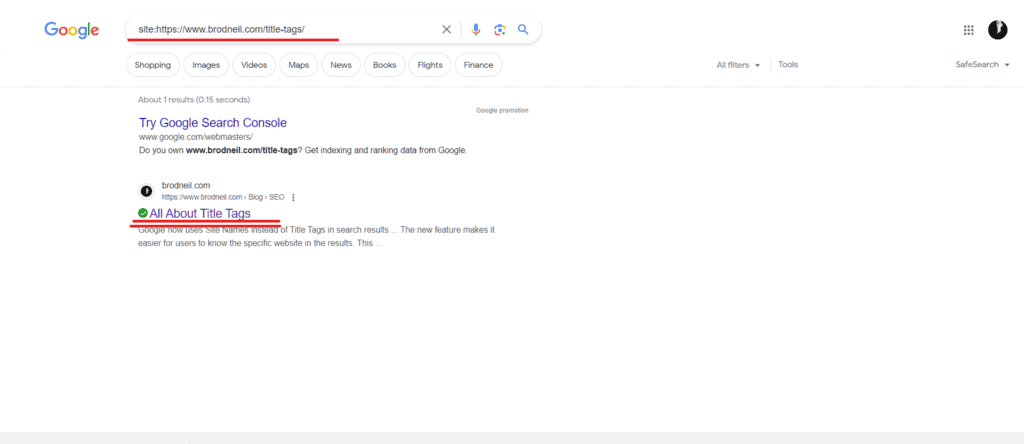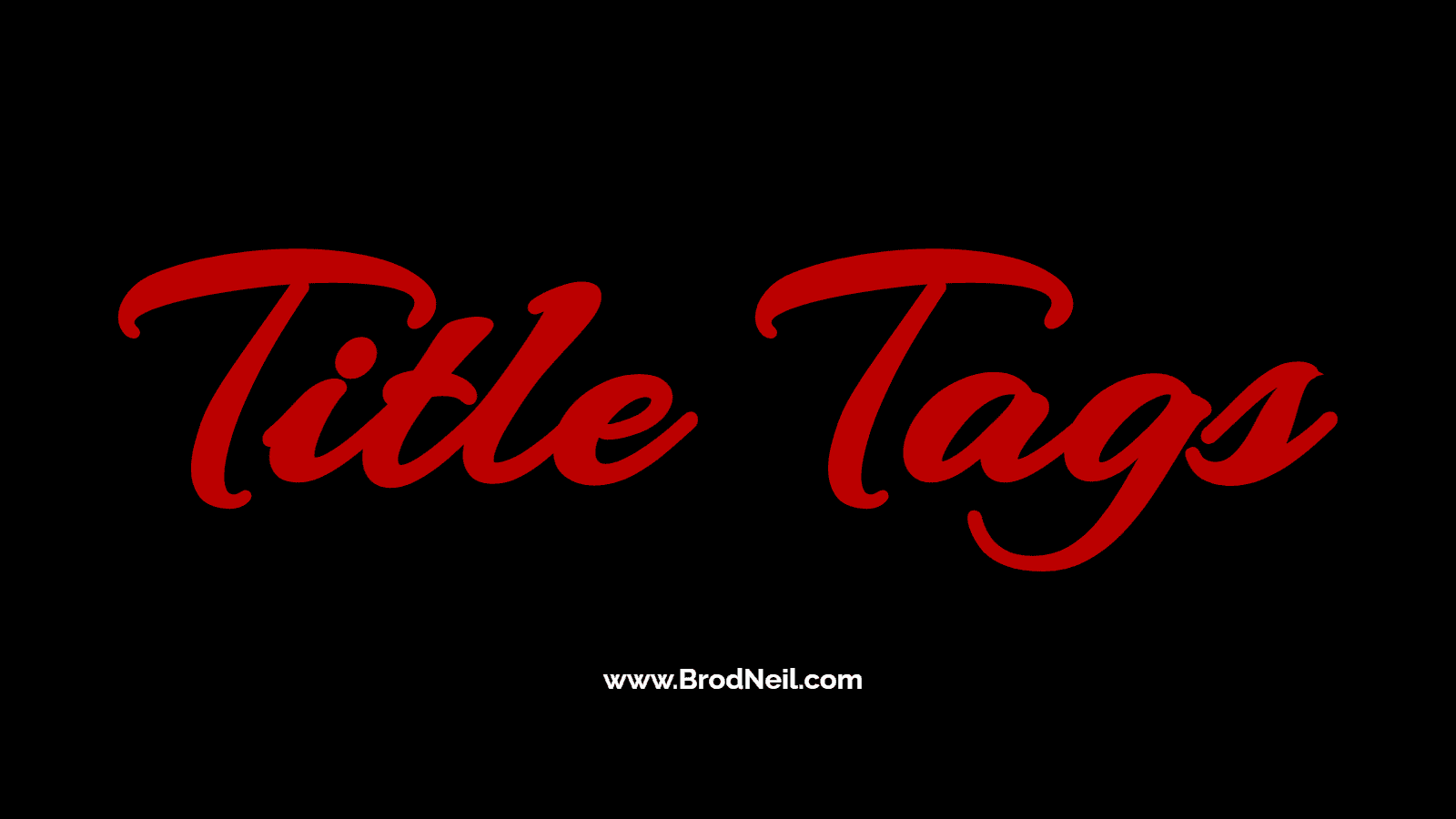Last Updated: 3 months ago by BrodNeil
The Title Tag versus the H1 Heading
The title tag, also known as the SEO title or page title, is the title that appears on the search engine results page (SERP) when someone searches for a particular keyword or phrase. It is an HTML tag that specifies the title of a web page and is displayed at the top of the browser window.
On the other hand, the heading of the content is the main heading that represents the page’s actual content. Typically, the main heading is denoted by H1 in SEO, giving the reader an idea of the content. Subheadings such as H2, H3, etc., are also used to divide the content into smaller sections for better readability and understanding.
It is important to note that the title tag and the heading of the content do not have to be the same. The title tag can concisely describe the web page’s content, while the heading should be more specific and provide more detail. This can help improve the user experience and help search engines understand the page’s content better, leading to better rankings in search results.
Where Can You Find the Title Tag, Also Known as Page Title or Seo Title?
There are three places where you can find title tags:
On the Browser

Page Source
Steps to replicate the screenshots below:
- Right+Click on your webpage.
- Click View page source.

- Use Ctrl+F (on PC) and Command+F (on Mac) to search and type </title>.

Search Engine Results Pages (Serps)
- Type site:[URL] on the Google search box. Ex. site:https://www.brodneil.com/title-tags/
- Check the result. The title tag is the one that is double-underlined.

Google Now Uses Site Names Instead of Title Tags in Search Results

2022 October 20

The new feature makes it easier for users to know the specific website in the results. This, however, does not work for subdomains.
Google Says That Title Tags Are Important for SEO Ranking
2022 September 30
However, it is not the most critical part of your page compared to your page’s main content.
While title tags play a crucial role in SEO ranking by providing a concise and accurate description of a webpage’s content, they are just one aspect of an overall effective SEO strategy. The main content of a page holds greater significance as it directly impacts user experience, engagement, and search engine rankings. While optimizing title tags is important, focusing on creating high-quality, relevant content should be prioritized for long-term SEO success.
Crafting Effective SEO Title Tags
To optimize title tags for SEO, I consider the following best practices crucial:
Relevance
I would say that ensuring the title accurately reflects the page’s content is the most important aspect of creating a title tag. This helps to make the title relevant to both users and search engines, setting clear expectations and improving the visibility of your page.
Length
Keep your page title tag under 60 characters to avoid truncation in search engine results pages. Keep it short and sweet to ensure visibility and readability in search results.
Uniqueness
A unique title tag for each page is crucial for search engine optimization and for users to distinguish this page easily from others on your website. This helps to improve click-through rates and overall user experience.
Keyword Placement
Including relevant keywords at the beginning of the title may seem mechanical, but when done correctly and contextually, it can yield better results. This is because people can easily relate to the keyword they are searching for, making it more likely that they will click on the link.
Know more about keywords here.
Compelling
Craft an engaging title tag encouraging users to click through to your website.
One Primary Keyword for the Title Tag
When creating a title tag for your content or URL, using only one primary keyword is important. This will ensure that your content remains focused on one main topic and benefits your readers. Doing so will make your content more topic-oriented and easier for your readers to understand. It’s important to avoid overloading the title with too many keywords, as it may come across as spammy.
Keyword Search Volume
It is important to choose a keyword with a high search volume to ensure that there is significant interest in the topic. However, I still give more importance to relevance over the search volume.
Brand Name
I understand that incorporating the brand name in the title tag may not be a top priority in some cases, especially if it’s not on the “About Us” page. However, it can still be beneficial for branding purposes and can help with search engine optimization. Ultimately, it’s up to your discretion and the specific goals of your website.
More on SEO: Search Engine Optimization.
I am passionate about what I do.
I spend over 48 hours a week on SEO and digital marketing.
"And whatsoever you do, do it heartily, for YHWH, and not for men." (Colossians 23:3)


